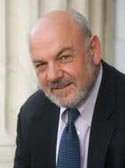The Supreme Court’s ruling to strike down limits on corporate campaign spending fuels a surge in election money
 Dear Friends and Neighbors:
Dear Friends and Neighbors:
From Ken Gordon
Those are the September 9 Bloomberg Business Week headlines.
The case that they are referring to is Citizens United v. the Federal Election Commission, which says that corporations and unions have free speech rights.
And since the Supreme Court in an earlier decision, Buckley v. Valeo, said that money is speech, we now, courtesy of five members of the Supreme Court, have unlimited corporate spending on elections.
The ruling is deeply flawed. I am about to explain why in what I intend to be plain language. Let me know if I have succeeded. You may become the first person on your block to understand this.
There is a difference between rights and policies. Rights, like in the Bill of Rights, are counter-majoritarian. This means that if you want to worship in a non-mainstream religion you can. If you want to protest against a popular war, you can. We don’t take votes to determine if you have a right. The concept of rights stems from a belief in human dignity and equality. Rights are a baseline of consideration that a human being acquires by being a human being. You have rights even if a majority does not want you to. The judicial branch is charged with protecting rights.
Policies are different than rights. They are based on the preferences of the majority. Do we want to spend more money on education or roads? This is a policy. Do we want to reduce or raise taxes? This is a policy.
Legislatures decide policies. Legislatures, because they stand for frequent elections, theoretically are responsive to the will of the majority. Policies frequently conflict with each other and the legislative branch tries to figure out what is best for the majority.
Now here is the key to the confusion. Free speech is both a right and a policy. It is an individual right. You can speak out even if a majority disagrees with you. And it is a policy. The marketplace of ideas is best served if there is a large number of contributors to the discussion. The marketplace concept is for the benefit of society, for the majority.
Here is where the Supreme Court went wrong. It treated the policy that more speech is better, even if it comes from a corporation, as if it was a right.
The reason that this matters is that policies are not trump cards in the way that rights are. They don’t automatically win. A policy has to compete with other policies. The idea that more speech is better, even if it results in corporate money disproportionately affecting elections, should have to compete with the idea that in a democracy elections should not be warped towards money.
If it is a policy, the legislative determination that money needs to be restricted beats a contrary judicial determination.
So, in Citizens United the Supreme Court erred by granting rights status to corporations and unions-non humans. If you have the email address for Scalia, Thomas, Roberts, Alito or Kennedy forward this to them so that they can correct their error.
Common Cause Pat Schroeder event: I’m a supporter of Common Cause. This organization is responsible for much of the legislation that supports democracy. This includes bills that provide transparency in government, limit money in elections, and reduce barriers to voting. Pat Schroeder is speaking at the Common Cause fundraiser. This is a good cause.
COMMON CAUSE 40TH ANNIVERSARY LUNCHEON
PAT SCHROEDER
FIRST WOMAN IN COLORADO ELECTED TO CONGRESS (1973-1997) & COMMON CAUSE NATIONAL GOVERNING BOARD MEMBER
Tuesday September 21, 2010
11:30am- 1:30pm
Ponti Hall, Denver Art Museum
100 W 14th Ave Parkway, Denver
 Print This Post
Print This Post







